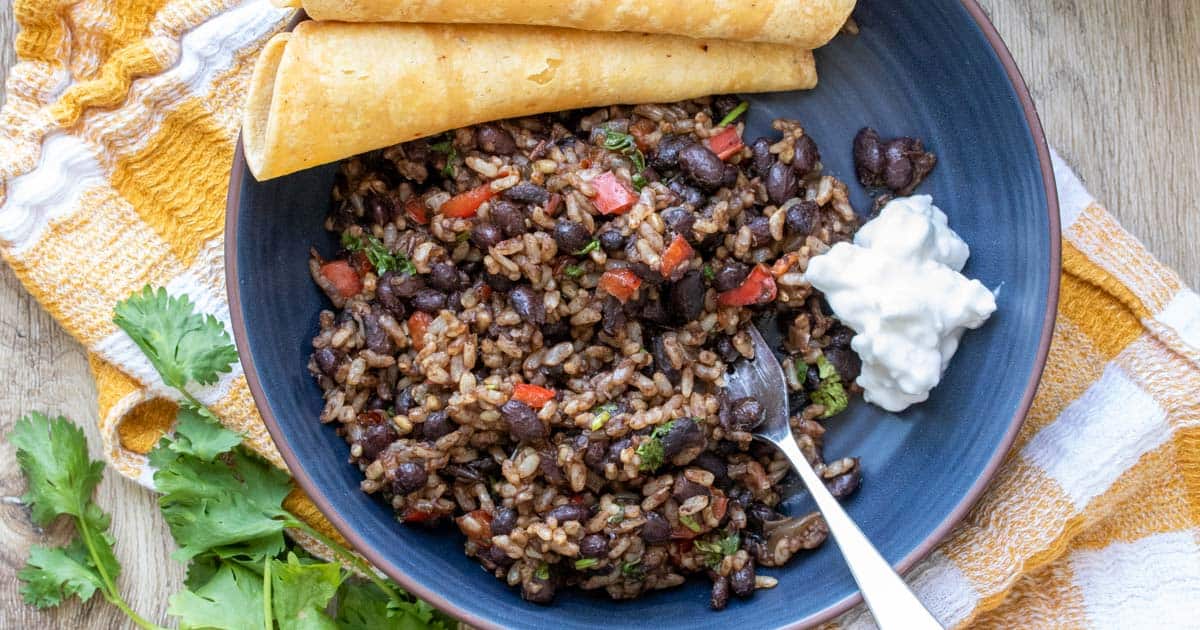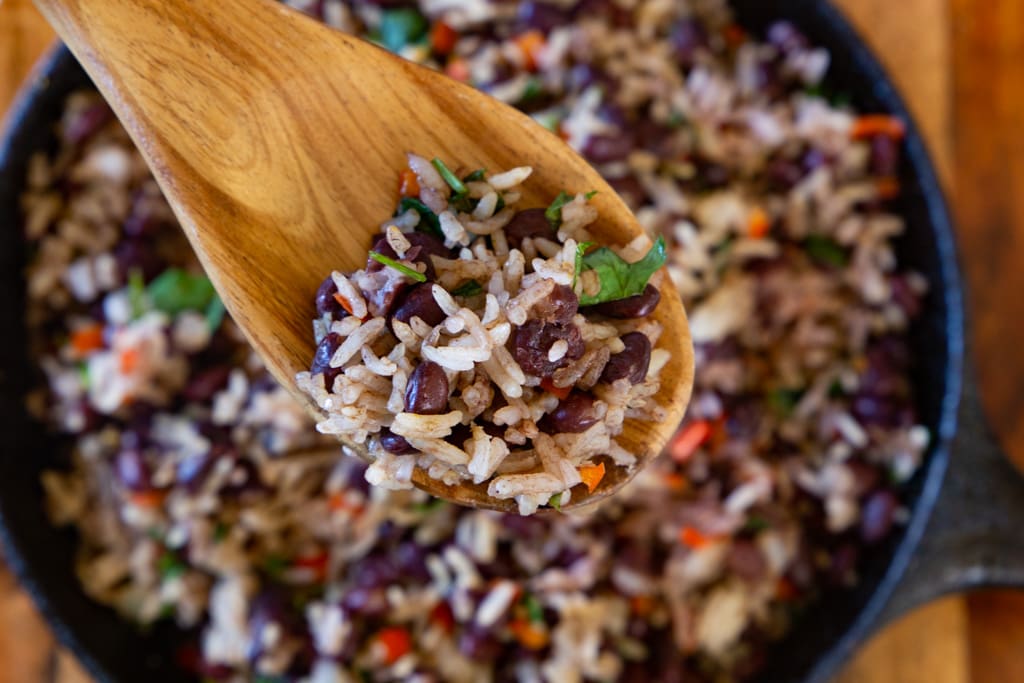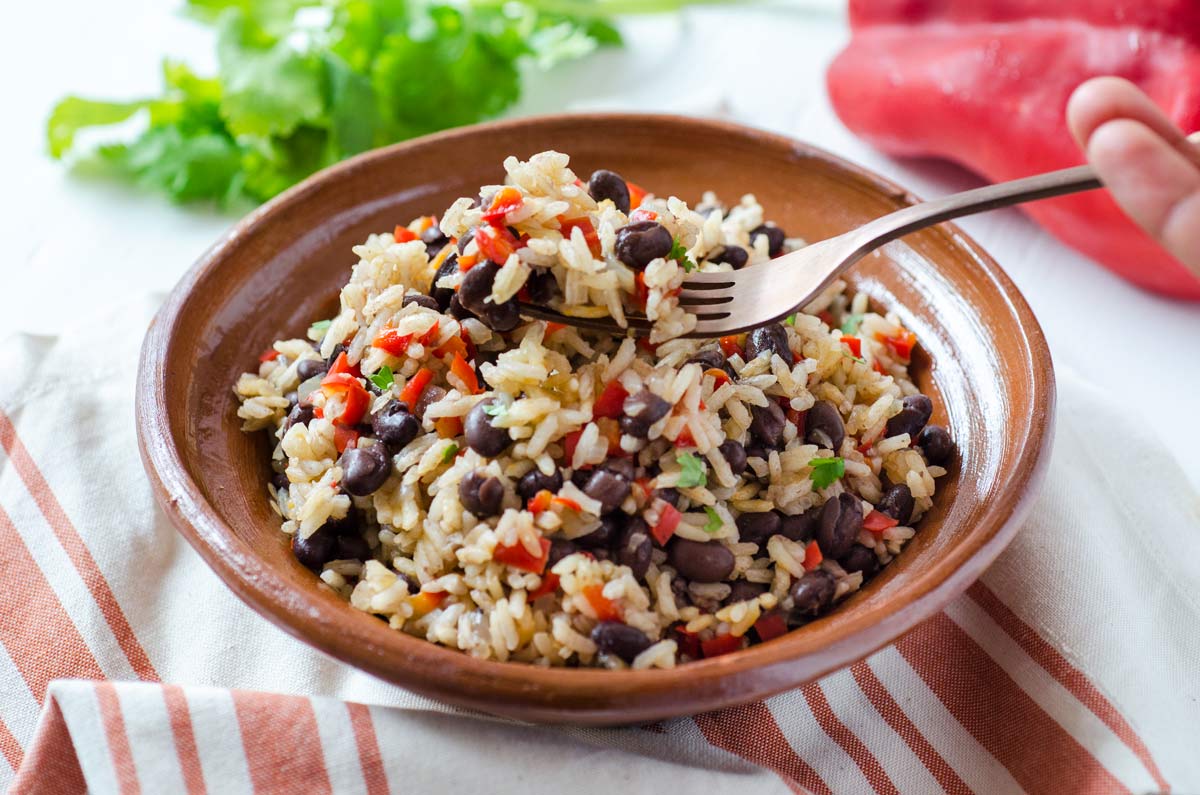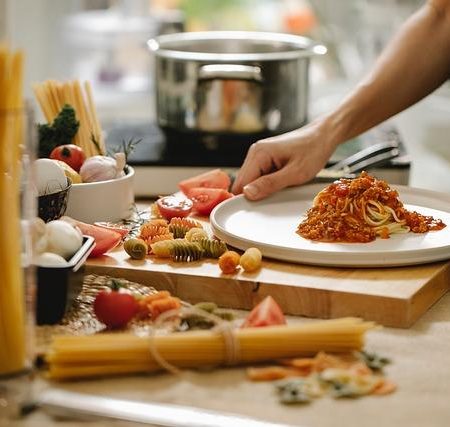Welcome to the ultimate guide to Costa Rican cuisine, where we dive into the delicious world of gallo pinto. In this handbook, we will explore the essential techniques, secret ingredients, and mouth-watering recipes that make this iconic dish a staple in every Costa Rican kitchen. So grab your apron and get ready to embark on a culinary adventure filled with flavor, tradition, and of course, plenty of rice and beans. Let’s get mixin’ and enjoy the ride!
Contents
Key Ingredients for Authentic Gallo Pinto
Craving a taste of Costa Rica? Look no further than the beloved dish of Gallo Pinto! To truly capture the essence of this traditional meal, it’s essential to have the right ingredients on hand. Here are the key players that will take your Gallo Pinto from ordinary to extraordinary:
- Rice: The foundation of Gallo Pinto, rice is a non-negotiable ingredient. Cooked to perfection, this fluffy grain provides the base for all the other flavors to shine.
- Black Beans: Adding richness and depth to the dish, black beans are a must-have component of Gallo Pinto. Whether you opt for canned or dried, make sure to give them a good rinse before adding them to your mix.
- Red Bell Pepper: Bringing a pop of color and sweetness, red bell peppers are a key ingredient in authentic Gallo Pinto. Be sure to chop them finely to ensure even distribution throughout the dish.
But wait, there’s more! To take your Gallo Pinto to the next level, don’t forget the following:
- Onion: Whether you prefer white, yellow or red, onions add a pungent kick to your Gallo Pinto. Sauteed until translucent, they serve as the flavorful base for your dish.
- Cilantro: Fresh and fragrant, cilantro adds a burst of herbaceous goodness to your Gallo Pinto. Finely chopped and sprinkled on top, it provides the perfect finishing touch.
History and Cultural Significance of Gallo Pinto in Costa Rica
Gallo Pinto, the iconic dish of Costa Rica, has a rich history and cultural significance that dates back centuries. This delicious combination of rice and beans has become a staple in Costa Rican cuisine and is enjoyed by locals and tourists alike.
The origins of Gallo Pinto can be traced back to the days of Spanish colonization when African slaves introduced the concept of combining rice and beans as a source of sustenance. Over time, the dish evolved to incorporate local ingredients such as cilantro, onions, and sweet peppers, giving it a unique flavor profile that is distinctly Costa Rican.
Today, Gallo Pinto is not just a meal, it’s a symbol of national pride and unity. It is served at breakfast, lunch, and dinner and is often enjoyed with a side of scrambled eggs, fried plantains, and a cup of rich Costa Rican coffee. The dish is so beloved that there are even annual festivals dedicated to celebrating Gallo Pinto and all its glory.
Whether you’re savoring a plate of Gallo Pinto on a bustling street corner in San Jose or enjoying it at a traditional Costa Rican family gathering, you can’t help but appreciate the history and cultural significance of this beloved dish. So, next time you’re in Costa Rica, make sure to try some Gallo Pinto and immerse yourself in the rich culinary heritage of this beautiful country.

Traditional Cooking Methods for Perfect Gallo Pinto
When it comes to making the perfect Gallo Pinto, there are a few traditional cooking methods that can take your dish to the next level. Forget about using a fancy rice cooker or instant pot – stick to the basics for a truly authentic taste!
First off, you’ll want to start by using a trusty old-fashioned stove. None of that high-tech induction nonsense – we’re talking good old gas burners here. There’s just something about the way the flames dance beneath your pot that brings out the best flavors in your Gallo Pinto.
Next, make sure you’re using a sturdy cast iron skillet. None of those flimsy non-stick pans – you need something that can handle the heat and give your rice that perfect crispy texture. Plus, there’s just something so satisfying about the sound of your spoon clanging against the metal as you stir.
And finally, don’t be afraid to get a little dirty. Cooking Gallo Pinto is a messy business, but that’s all part of the fun! Embrace the splatters and spills as you mix in your beans and spices, knowing that the end result will be well worth the mess.

Variations and Regional Adaptations of Gallo Pinto
When it comes to variations of our beloved Gallo Pinto, there are endless possibilities! Each region puts its own unique spin on this classic dish, resulting in some truly mouth-watering combinations.
In Costa Rica, you might find Gallo Pinto made with Lizano sauce, a tangy and slightly sweet condiment that adds a whole new layer of flavor. Meanwhile, in Nicaragua, they love to add a dash of Worcestershire sauce to give their Gallo Pinto a savory kick.
Some regions even add ingredients like coconut milk or plantains to their Gallo Pinto, creating a whole new taste sensation that you didn’t even know was possible. And let’s not forget about the various toppings that can be added, from crispy fried eggs to fresh avocado slices. The possibilities are truly endless!

Nutritional Benefits of Gallo Pinto as a Staple Dish in Costa Rican Cuisine
Are you ready to learn about the amazing nutritional benefits of gallo pinto, the ultimate staple dish in Costa Rican cuisine? Get ready to be amazed!
First off, let’s talk about the protein content of gallo pinto. This delicious dish is made with a combination of rice and beans, creating a complete protein that is perfect for vegetarians and meat-eaters alike. Protein is essential for building and repairing tissues in the body, so you can feel good about indulging in a heaping plate of gallo pinto.
Next up, let’s chat about the fiber content of gallo pinto. Thanks to the beans and rice, this dish is packed full of fiber, which is crucial for digestion and overall gut health. Fiber helps to keep things moving smoothly and can even help with weight management. So go ahead and load up your plate with gallo pinto!
And last but not least, let’s not forget about the vitamins and minerals found in gallo pinto. This dish is loaded with essential nutrients like iron, magnesium, and potassium, which are all important for overall health and well-being. So the next time you’re in Costa Rica, be sure to order yourself a big serving of gallo pinto and bask in the delicious and nutritious goodness!
FAQs
What is Gallo Pinto?
Gallo Pinto is a traditional dish from Costa Rica made with rice and beans cooked together with onions, peppers, and cilantro. It is a staple in Costa Rican cuisine and is typically served for breakfast.
What makes Gallo Pinto authentic?
Authentic Gallo Pinto is made with a specific type of small red beans called frijoles rojos, which give the dish its unique flavor. It is also cooked in Lizano sauce, a popular condiment in Costa Rica that adds depth and richness to the dish.
Can I customize my Gallo Pinto?
Absolutely! While traditional Gallo Pinto follows a specific recipe, feel free to customize it to your liking. You can add ingredients like chorizo, plantains, or scrambled eggs to make it your own.
Is Gallo Pinto difficult to make?
Not at all! Gallo Pinto is a simple and straightforward dish to prepare. As long as you have the right ingredients and follow the recipe closely, you’ll be able to whip up a delicious batch in no time.
What are some tips for making the perfect Gallo Pinto?
To make the perfect Gallo Pinto, be sure to cook the rice and beans separately before combining them. This will ensure that each component is cooked to perfection and retains its individual flavor. Additionally, don’t be afraid to experiment with different seasonings and toppings to find the combination that suits your taste buds.
—
¡Hasta luego!
And there you have it, amigos! You are now equipped with the knowledge and skills to conquer the world of Costa Rican cuisine with the help of “The Essential Gallo Pinto Handbook”. So grab your ingredients, put on your apron, and get ready to impress your friends and family with your newfound culinary expertise. Remember, there’s nothing a delicious plate of gallo pinto can’t fix! ¡Buen provecho!




